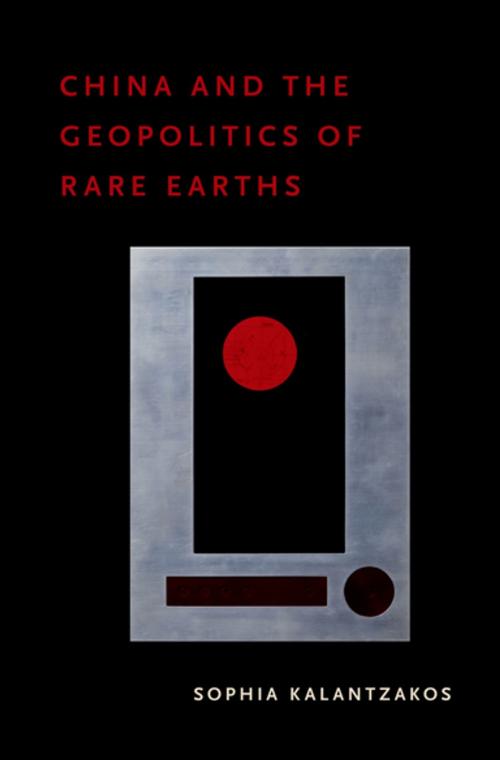China and the Geopolitics of Rare Earths
Nonfiction, Social & Cultural Studies, Political Science, Government, Public Policy, International, International Relations| Author: | Sophia Kalantzakos | ISBN: | 9780190670955 |
| Publisher: | Oxford University Press | Publication: | November 1, 2017 |
| Imprint: | Oxford University Press | Language: | English |
| Author: | Sophia Kalantzakos |
| ISBN: | 9780190670955 |
| Publisher: | Oxford University Press |
| Publication: | November 1, 2017 |
| Imprint: | Oxford University Press |
| Language: | English |
Rare earths are elements that are found in the Earth's crust, and are vital ingredients for the production of a wide variety of high tech, defense, and green technologies-everything from iPhones and medical technologies to wind turbines, efficiency lighting, smart bombs, and submarines. While they are not particularly "rare" in availability, they are difficult and expensive to mine. Yet, China has managed to gain control over an estimated 97 percent of the rare earth industry since the 1990s through cheap production, high export taxes, and artificial limitations of supply. Rare earths, and China's monopoly over them, became international news after China "unofficially" curtailed exports to Japan, the United States, and Europe in 2010. This embargo followed a collision between Chinese and Japanese boats in the East China Sea, a locus of geopolitical and economic tension between the two countries. Although the World Trade Organization forced China to scrap its restrictions, it still holds a stranglehold over these elements that are so critical to the economic and security interests of the United States and its allies. In this book, Sophia Kalantzakos argues that the 2010 rare earth crisis signaled more than just a trade dispute. Rather, it raises questions about China's use of economic statecraft, and must be regarded as a part of the larger discourse of global power relations. Importantly, she also argues that the failure of political actors in major industrial nations to enact comprehensive and effective policy solutions, or the scientific and business communities to devise sustainable rare earth production outside of China, points to future resource competition. Focusing on China's monopoly over the rare earth industry, China and the Geopolitics of Rare Earths examines the impacts of growing worldwide resource competition and the complexities policymakers face as they develop strategies and responses in an increasingly globalized world.
Rare earths are elements that are found in the Earth's crust, and are vital ingredients for the production of a wide variety of high tech, defense, and green technologies-everything from iPhones and medical technologies to wind turbines, efficiency lighting, smart bombs, and submarines. While they are not particularly "rare" in availability, they are difficult and expensive to mine. Yet, China has managed to gain control over an estimated 97 percent of the rare earth industry since the 1990s through cheap production, high export taxes, and artificial limitations of supply. Rare earths, and China's monopoly over them, became international news after China "unofficially" curtailed exports to Japan, the United States, and Europe in 2010. This embargo followed a collision between Chinese and Japanese boats in the East China Sea, a locus of geopolitical and economic tension between the two countries. Although the World Trade Organization forced China to scrap its restrictions, it still holds a stranglehold over these elements that are so critical to the economic and security interests of the United States and its allies. In this book, Sophia Kalantzakos argues that the 2010 rare earth crisis signaled more than just a trade dispute. Rather, it raises questions about China's use of economic statecraft, and must be regarded as a part of the larger discourse of global power relations. Importantly, she also argues that the failure of political actors in major industrial nations to enact comprehensive and effective policy solutions, or the scientific and business communities to devise sustainable rare earth production outside of China, points to future resource competition. Focusing on China's monopoly over the rare earth industry, China and the Geopolitics of Rare Earths examines the impacts of growing worldwide resource competition and the complexities policymakers face as they develop strategies and responses in an increasingly globalized world.















